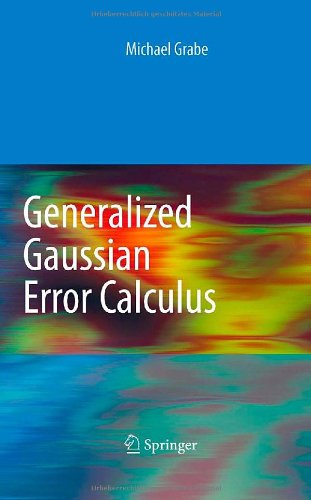

Most ebook files are in PDF format, so you can easily read them using various software such as Foxit Reader or directly on the Google Chrome browser.
Some ebook files are released by publishers in other formats such as .awz, .mobi, .epub, .fb2, etc. You may need to install specific software to read these formats on mobile/PC, such as Calibre.
Please read the tutorial at this link: https://ebookbell.com/faq
We offer FREE conversion to the popular formats you request; however, this may take some time. Therefore, right after payment, please email us, and we will try to provide the service as quickly as possible.
For some exceptional file formats or broken links (if any), please refrain from opening any disputes. Instead, email us first, and we will try to assist within a maximum of 6 hours.
EbookBell Team

0.0
0 reviewsFor the first time in 200 years Generalized Gaussian Error Calculus addresses a rigorous, complete and self-consistent revision of the Gaussian error calculus. Since experimentalists realized that measurements in general are burdened by unknown systematic errors, the classical, widespread used evaluation procedures scrutinizing the consequences of random errors alone turned out to be obsolete. As a matter of course, the error calculus to-be, treating random and unknown systematic errors side by side, should ensure the consistency and traceability of physical units, physical constants and physical quantities at large.
The generalized Gaussian error calculus considers unknown systematic errors to spawn biased estimators. Beyond, random errors are asked to conform to the idea of what the author calls well-defined measuring conditions.
The approach features the properties of a building kit: any overall uncertainty turns out to be the sum of a contribution due to random errors, to be taken from a confidence interval as put down by Student, and a contribution due to unknown systematic errors, as expressed by an appropriate worst case estimation.